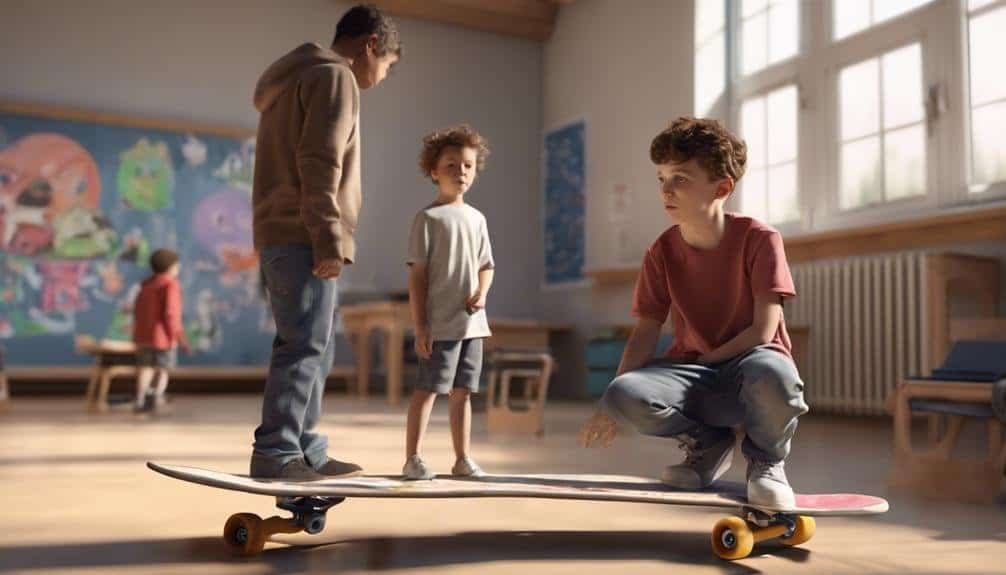What Is Bandura's Social Learning Theory?
Imagine observing a child carefully watching their parent assemble a complicated puzzle, then attempting it themselves with newfound determination and focus. This scenario is a prime example of Bandura's Social Learning Theory in action.
As you explore this theory further, you'll uncover how individuals acquire new behaviors through observation and imitation, shaping their actions and responses within social contexts.
Stay tuned to discover how this theory has influenced fields such as education, therapy, and more, through three compelling real-world examples that showcase its lasting impact on behavior and learning.
Key Takeaways
- Bandura's Social Learning Theory emphasizes learning through observation and imitation.
- It highlights the role of cognitive processes in matching cognition with behavior.
- The theory is applicable in explaining how individuals acquire new behaviors.
- Bandura's theory is particularly effective in demonstrating learning through modeling processes.
Real-Life Application of Bandura's Theory
Bandura's Social Learning Theory finds practical application in various real-life scenarios where individuals observe and imitate behaviors of significant figures in their environment. In the workplace, this theory is evident as employees often model their behavior after successful colleagues or supervisors. Observing positive workplace behavior can lead to its imitation and subsequent reinforcement.
Similarly, in parenting techniques, caregivers play a crucial role as children observe and learn from their actions. By modeling effective communication, problem-solving, and emotional regulation, parents can shape their children's behavior through imitation. Bandura's theory highlights the significance of role models and the impact of observed behavior on individual learning and development in both professional and personal settings.
Social Learning in Educational Settings
Social learning in educational settings involves students assimilating knowledge through direct interaction with their environment and peers. Classroom dynamics play a significant role in shaping student engagement and learning outcomes.
Teachers hold a pivotal position in influencing student behavior and cognition through their instructional methods and modeling of expected behaviors. Peer interactions within the educational environment also contribute to the social learning process, as students observe, imitate, and learn from one another.
Positive peer relationships can enhance learning experiences and foster a collaborative atmosphere. By understanding the impact of teacher influence and peer interactions on student learning, educators can create supportive environments that facilitate the acquisition of new skills and behaviors based on Bandura's Social Learning Theory.
Bandura's Theory in Behavioral Therapy
Behavioral therapy incorporates principles of observational learning and behavior modification to address psychological issues. Bandura's Social Learning Theory has been applied in behavioral therapy to help individuals overcome various challenges. In this context, behavior modification techniques are utilized to bring about positive changes in behavior and thought patterns.
Some therapy techniques that draw from Bandura's theory include:
- Modeling: Therapists demonstrate desired behaviors for clients to observe and imitate.
- Role-playing: Clients engage in simulated scenarios to practice new behaviors in a safe environment.
- Self-monitoring: Clients track their own behaviors and thoughts to increase self-awareness and promote desired changes.
These techniques aim to enhance learning and facilitate lasting behavioral change in individuals undergoing therapy.
Conclusion
So there you have it – Bandura's Social Learning Theory, a groundbreaking concept that emphasizes the power of observation and modeling in shaping behavior.
Who'd have thought that simply watching others could have such a profound impact on our own actions?
It's almost ironic how something as simple as watching and imitating can play such a significant role in how we learn and grow.
The power of observation truly knows no bounds!







